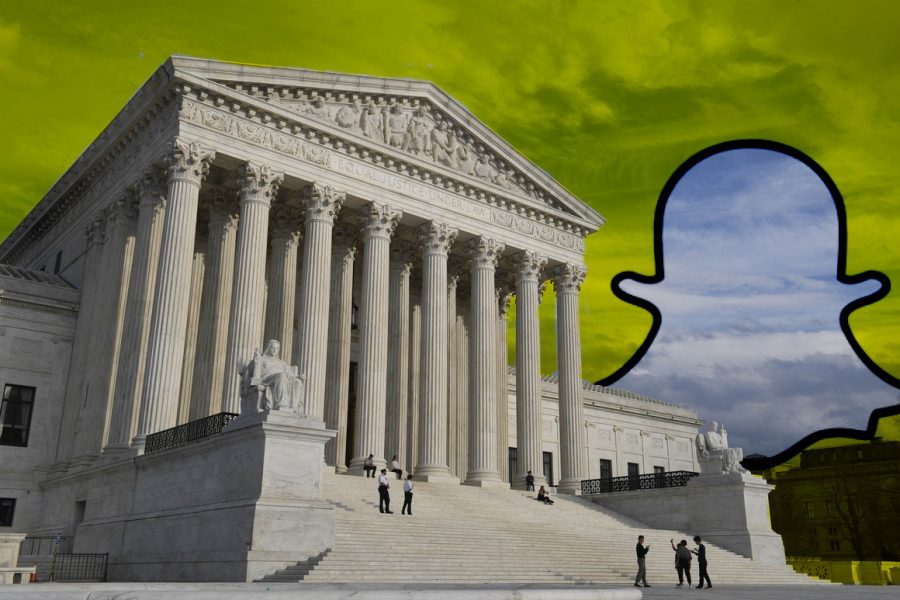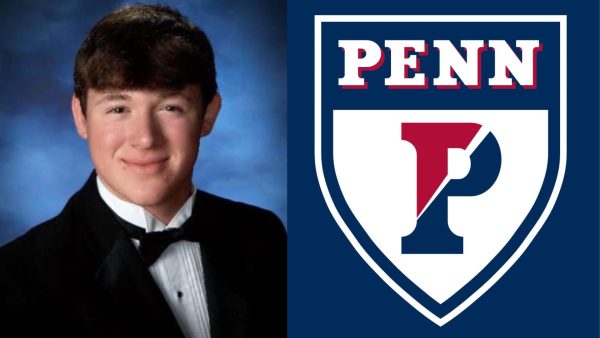“Vulgar Words” set to decide fate of students online free speech
The Supreme Court will hear a case about student free speech, stemming from an online outburst on Snapchat, in “Mahanoy Area School District v. B.L”.
The parameters of free speech have always been difficult to define. These boundaries should not adhere only to just public instances, but also online. It should serve as no surprise that one day, online free speech would be tested.
This January, the Supreme Court agreed to hear a case of a cheerleader who may have pushed the limits too far. At Mahanoy Area High School in Mahanoy City, Pennsylvania, this student was suspended for posting vulgar messages on Snapchat, depicting her views on the “school,” “softball,” “cheer” and “everything,” with the impetus being her failure to make varsity. The reason for her punishment was to avoid chaotic team environments and disorder. (New York Times)
This one student has brought question and change into all students’ lives across the nation. But these questions are difficult to answer. In the dawn of the technological age, new problems arise. It reoccurs over and over again: how large is the school’s online domain for controlling speech; can they punish students for anything they say or do; where is the limit of power?
According to the Freedom Forum Institute, “public school students do not possess unlimited First Amendment rights,” which stem from two key principles. The Supreme Court has previously stated that minors and adults do not share the same status under the First Amendment. Secondly, the governing body can dictate what is and what is not allowed. This “body” can be (but not limited to) an educator, employer, or jailer,” meaning that if in the hallways or classroom, a student can be punished.
The problem with this, however, is that the level of power off of school grounds is not clear. While the Supreme Court has declared online speech with the greatest of protection, there have been few instances where students may have taken it ethically too far, prompting schools to take action. These schools who have acted never faced any legal trouble.
This creates a very open ended interpretation of the law. The vagueness and gray area need to be more clear cut.
But what is the right decision? Should students receive punishment, or should they be free to express their opinion no matter how morally wrong it might be?
The Third Circuit Court of Appeals saying that “B.L.’s (the plaintiff) post was crude, rude, and juvenile, just as we might expect of an adolescent,” but also shifted the blame, saying, “but the primary responsibility for teaching civility rests with parents and other members of the community. As arms of the state, public schools have an interest in teaching civility by example, persuasion, and encouragement, but they may not leverage the coercive power with which they have been entrusted to do so.” (Education Week)
Justin Driver, a law professor at Yale University, says he agrees with the ruling but also wants more clarity from the Supreme Court.
History has shown student free speech becoming weaker and weaker, with the most recent ruling in favor of the schools occurring in 2007. A lot of the speech from our youth is limited to an online platform, and past rulings on freedom of speech for students do not apply to this situation.
Tinker v. Des Moines Independent Community School District prohibits disruptive speech if it is on campus. The district judge’s panel acknowledged that if there are sufficient links between the school and a defamation post, punishment is eligible. Protesting the school, however, would not fall under this category.
With online learning having picked up in recent years, and most students having to learn virtually during the pandemic, most public schools operated as if the internet was their campus. Can the words of a teenager using an ephemeral post as an outlet of rage be considered disruptive? Or is it just by chance that the incident occurred?
The case may not be reviewed until later in the year. Serious evaluation is needed, and all students deserve an answer.












